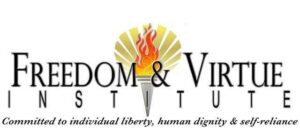Among the legal conflicts stirred up by the ongoing pandemic is one over the status of churches and religious gatherings. President Donald Trump recently called churches “essential” and urged states to permit them to reopen. Meanwhile, a federal court in Maryland turned back a challenge to that state’s stay-at-home order on behalf of religious groups seeking to override a limitation on gatherings of more than ten people.
There is a complex array of issues at play in these disputes: constitutional, legal, political, and medical questions are all mixed together in a confusing stew of facts, principles, and opinions. It’s difficult to sort out, and reasonable people of good will may reach different conclusions on the various specific cases that have been and continue to be contested. Religious liberty and the church-state question have been thorny problems in American politics and culture for centuries and the current dispute is just another chapter in that long story. In that sense, this debate is probably unavoidable and unending.
On one thing, however, Americans ought to be united: Religion is important—even essential—to the welfare of the country, and therefore policy should always lean toward religious liberty and support for religious institutions. That was the view enshrined in the First Amendment and we would do well to respect it.
To some, the claim that religion is essential may seem too strong. While religion plays an important role in the lives of many people and it may have beneficial societal effects, they would say, it’s possible to fashion and maintain a good social order without it.
America’s founders would disagree. George Washington said, “Of all the dispositions and habits which lead to political prosperity, religion and morality are indispensable supports.” Strong words. “We have no government armed with power capable of contending with human passions unbridled by morality and religion,” John Adams warned. “Our Constitution is designed only for a moral and religious people. It is wholly inadequate for any other.” So thought our country’s first two presidents, men who were also among the most important figures in the birth of the nation and its political structure.
Their study of history and their observation of human experience led Washington and Adams to conclude that a thriving, free society could not endure without a virtuous citizenry. Virtue, in turn, could not survive without religion. Worship of God gave rise to morality, and morality provided a brake on destructive human tendencies. Law could not replace religion in this task.
Their views were shared widely by other founders, including Thomas Jefferson, James Madison, and Alexander Hamilton. Madison’s defense of free exercise and no establishment was one of the key factors in the adoption of the First Amendment. He advocated a division between church and state not because he feared religion, but because he feared the state. Religion, for Madison, was “the duty which we owe to our Creator,” and he thought it too important to be meddled with by self-interested politicians.
As secularism has advanced in recent decades, the founders’ views have ceased to be the consensus, at least within elite America. But they continue to be true, as sociological scholarship attests. Patrick Fagan of the Marriage and Religion Research Institute has been collecting and interpreting data on religion’s sociological impact since the 1980s. He has consistently found overwhelming evidence for religion’s positive effect, primarily because “the strength of the family unit is intertwined with the practice of religion.” Regular churchgoers are more likely to be married, less likely to be divorced or single, and more likely to manifest high levels of satisfaction in marriage. Frequent practice of religion also “helps poor persons move out of poverty. Regular church attendance, for example, is particularly instrumental in helping young people to escape the poverty of inner-city life.” Regular religious practice “inoculates individuals against a host of social problems, including suicide, drug abuse, out-of-wedlock births, crime, and divorce.” It “encourages such beneficial effects on mental health as less depression, more self-esteem, and greater family and marital happiness.” Finally, religious practice “is good for personal physical health: It increases longevity, improves one’s chances of recovery from illness, and lessens the incidence of many killer diseases.”
None of this is to say, of course, that religion is a guarantee of happiness, health, or prosperity. It is instead to say that the evidence shows that the Founders were right: In general, and in the aggregate, religion fosters virtue and virtue supports societal stability. If this is true, then government should view religious institutions as allies rather than enemies. It should do everything in its power to promote rather than impede the free exercise of religion. It should ensure that laws and regulations do not deliberately or inadvertently hinder that practice. And its public statements should recognize that people of faith are not a threat to the health and welfare of the nation; they are instead the most reliable source of functional families, which are in turn the most effective generator of charitable volunteers, politically involved citizens, and economically productive workers.
Religion is an indispensable support, said George Washington. Washington, D.C.—and state capitals across the country—should see it the same way.


